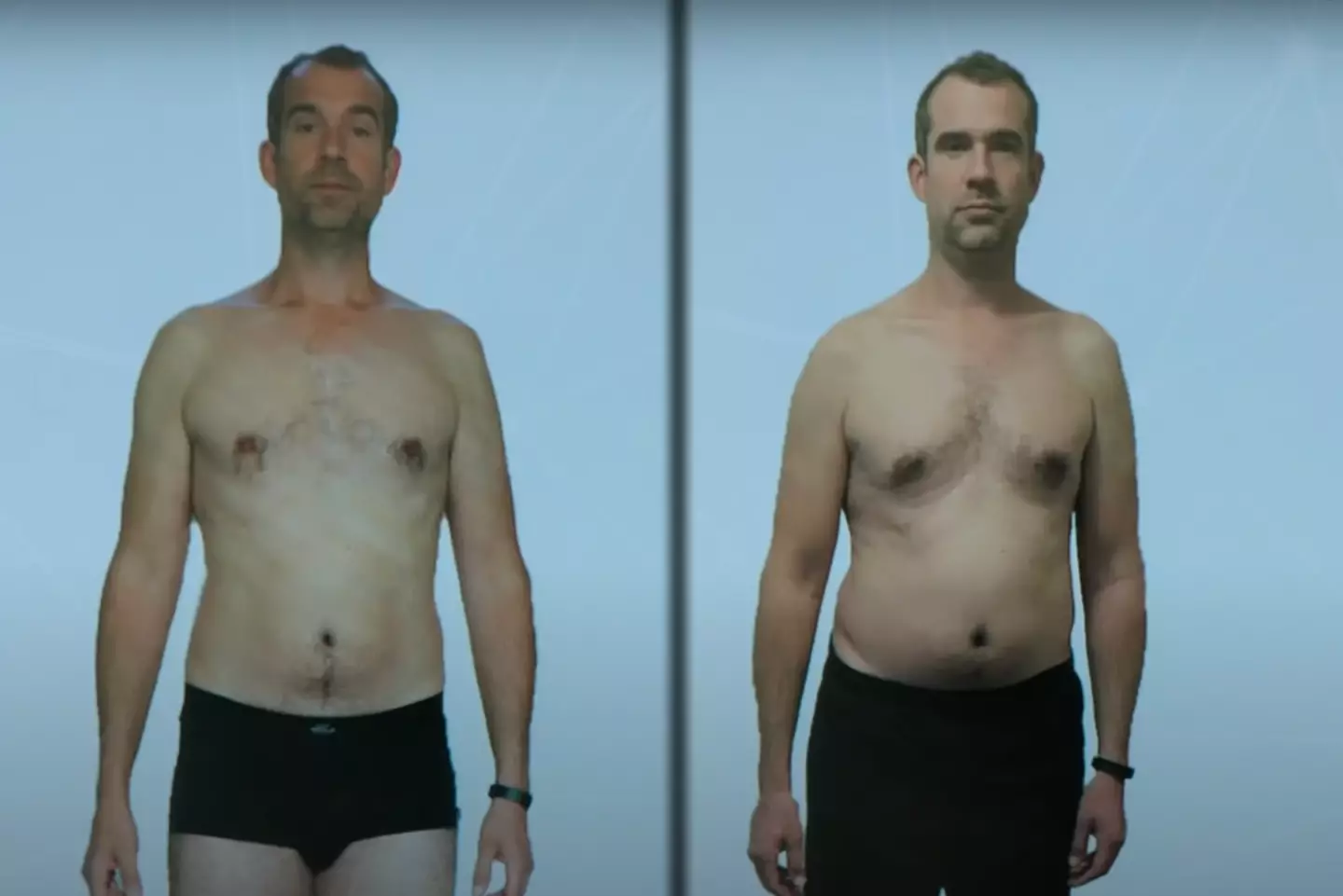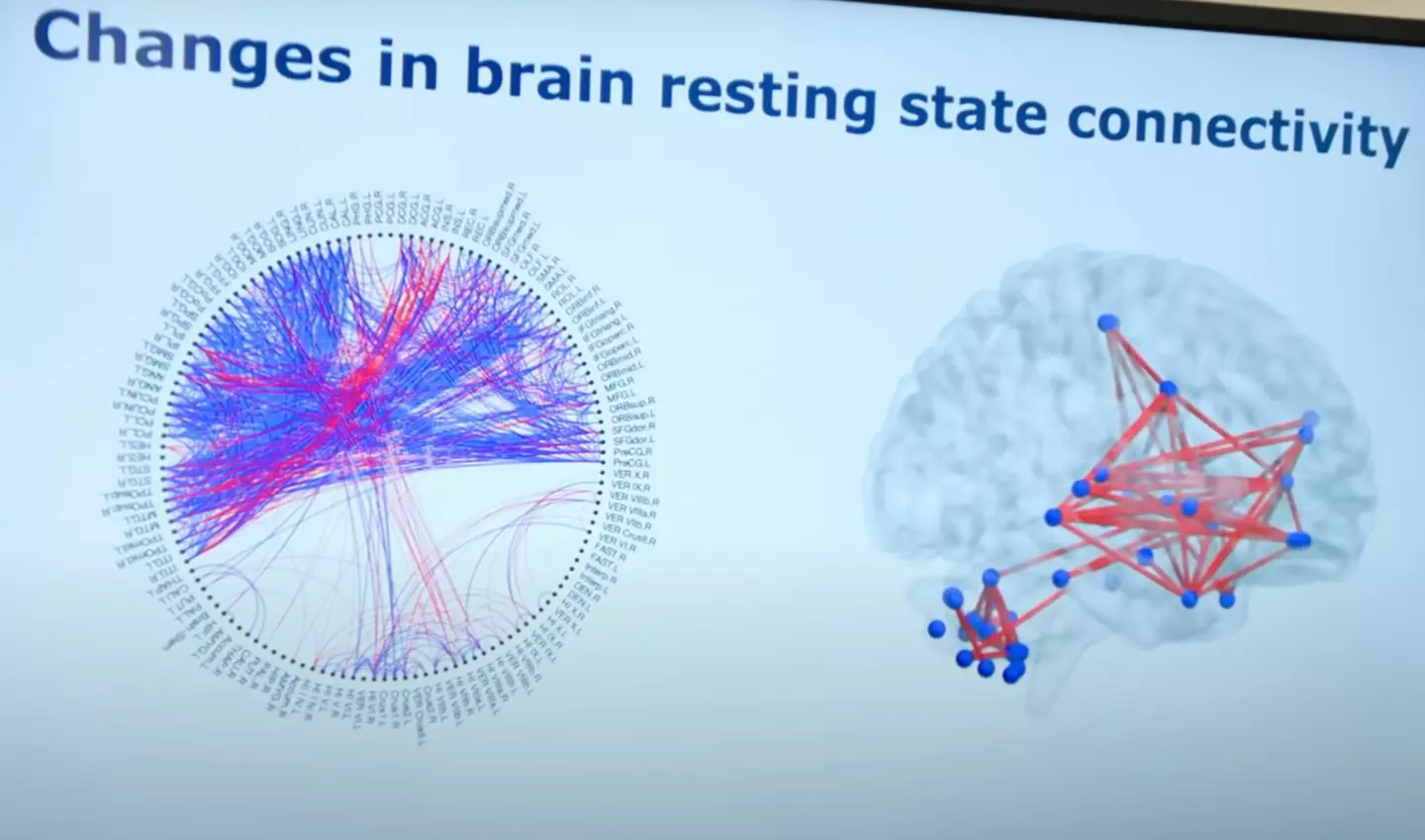To demonstrate the impact of consuming a high amount of saturated fat, salt, and sugar, Dr. Chris Van Tulleken decided to follow a diet consisting of 80 percent ultra-processed foods for a month.
“It sounds extreme, but it’s the diet one in five people in the UK eats,” he observed.
Despite the experiment lasting only 30 days, the effects on his body and mind were significant.
Dr. Van Tulleken, an expert in infectious diseases, partnered with the BBC to create a documentary titled What Are We Feeding Our Kids?, which was released in 2021.
The guidelines for his experiment were straightforward – he had to eat whenever he felt hungry, which was typically three meals a day with occasional snacks prior to the experiment.
However, on the ultra-processed diet, he experienced increased food cravings.

At the end of the experiment, the physical changes were as expected – he gained 14 pounds in a month, his body mass index increased by 2.0, placing him in the ‘overweight’ category, and his body fat rose by 6.6 pounds.
“If the weight gain continued at that rate, I’d gain six stone [84 pounds],” Dr. Van Tulleken remarked.
Professor Rachel Batterham, head of the Centre for Obesity Research at University College London, conducted the tests on the 46-year-old.
“What we found is that the hunger hormone in your blood went up by 30 percent after being on the diet,” she informed him.
Dr. Van Tulleken asked: “So that’s why I felt hungrier. And what about the hormone that makes me feel full?”
Prof. Batterham replied: “We saw a decrease in the fullness hormone. So, you’ve got a double-whammy.”
They performed a brain scan at the start of the experiment, and the results left Dr. Van Tulleken astonished.
Prof. Batterham explained the scan, showing how the blue lines represented the brain’s communication before the diet, while the red lines indicated new connections formed during the experiment.

“Comparing these scans has revealed that my diet has linked up the reward centers of my brain with the areas that drive repetitive automatic behavior, so eating ultra-processed food has become something my brain simply tells me to do – without me even wanting it,” Dr. Van Tulleken said.
“Shockingly this is something you might see in a person with addiction.”
He added: “I really, really didn’t expect this when I came in this morning.”
Dr. Van Tulleken expressed concern about the impact of ultra-processed foods on children’s behavior.
“My concern is that children’s brains are still developing and they’re much more malleable than mine, which means the changes are likely to be even greater,” he explained.
Social media users quickly shared their reactions to the experiment, with one commenting: “This is insane.”
Another added: “This man sacrificed his body for science. Not gonna lie he’s successfully horrified me into wanting to clean up my diet.”
Someone else remarked: “The MRI results were particularly fascinating. I had no idea that new neural pathways would be formed just by changing diet.”
I’m feeling inspired to get back to cooking tonight.
